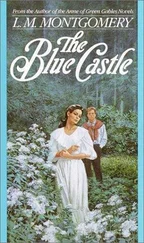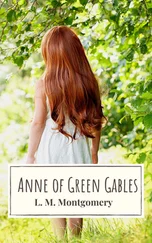Lucy Montgomery - The Golden Road
Здесь есть возможность читать онлайн «Lucy Montgomery - The Golden Road» весь текст электронной книги совершенно бесплатно (целиком полную версию без сокращений). В некоторых случаях можно слушать аудио, скачать через торрент в формате fb2 и присутствует краткое содержание. Жанр: Детская проза, на английском языке. Описание произведения, (предисловие) а так же отзывы посетителей доступны на портале библиотеки ЛибКат.
- Название:The Golden Road
- Автор:
- Жанр:
- Год:неизвестен
- ISBN:нет данных
- Рейтинг книги:4 / 5. Голосов: 1
-
Избранное:Добавить в избранное
- Отзывы:
-
Ваша оценка:
- 80
- 1
- 2
- 3
- 4
- 5
The Golden Road: краткое содержание, описание и аннотация
Предлагаем к чтению аннотацию, описание, краткое содержание или предисловие (зависит от того, что написал сам автор книги «The Golden Road»). Если вы не нашли необходимую информацию о книге — напишите в комментариях, мы постараемся отыскать её.
The Golden Road — читать онлайн бесплатно полную книгу (весь текст) целиком
Ниже представлен текст книги, разбитый по страницам. Система сохранения места последней прочитанной страницы, позволяет с удобством читать онлайн бесплатно книгу «The Golden Road», без необходимости каждый раз заново искать на чём Вы остановились. Поставьте закладку, и сможете в любой момент перейти на страницу, на которой закончили чтение.
Интервал:
Закладка:
"Ought we to ask her to say grace?" she wanted to know.
"I know a story," said the Story Girl, "about Uncle Roger when he was just a young man. He went to the house of a very deaf old lady and when they sat down to the table she asked him to say grace. Uncle Roger had never done such a thing in his life and he turned as red as a beet and looked down and muttered, 'E-r-r, please excuse me—I—I'm not accustomed to doing that.' Then he looked up and the old lady said 'Amen,' loudly and cheerfully. She thought Uncle Roger was saying grace all the time."
"I don't think it's right to tell funny stories about such things," said Felicity coldly. "And I asked for your opinion, not for a story."
"If we don't ask her, Felix must say it, for he's the only one who can, and we must have it, or she'd be shocked."
"Oh, ask her—ask her," advised Felix hastily.
She was asked accordingly and said grace without any hesitation, after which she proceeded to eat heartily of the excellent supper Felicity had provided. The rusks were especially good and Great-aunt Eliza ate three of them and praised them. Apart from that she said little and during the first part of the meal we sat in embarrassed silence. Towards the last, however, our tongues were loosened, and the Story Girl told us a tragic tale of old Charlottetown and a governor's wife who had died of a broken heart in the early days of the colony.
"They say that story isn't true," said Felicity. "They say what she really died of was indigestion. The Governor's wife who lives there now is a relation of our own. She is a second cousin of father's but we've never seen her. Her name was Agnes Clark. And mind you, when father was a young man he was dead in love with her and so was she with him."
"Who ever told you that?" exclaimed Dan.
"Aunt Olivia. And I've heard ma teasing father about it, too. Of course, it was before father got acquainted with mother."
"Why didn't your father marry her?" I asked.
"Well, she just simply wouldn't marry him in the end. She got over being in love with him. I guess she was pretty fickle. Aunt Olivia said father felt awful about it for awhile, but he got over it when he met ma. Ma was twice as good-looking as Agnes Clark. Agnes was a sight for freckles, so Aunt Olivia says. But she and father remained real good friends. Just think, if she had married him we would have been the children of the Governor's wife."
"But she wouldn't have been the Governor's wife then," said Dan.
"I guess it's just as good being father's wife," declared Cecily loyally.
"You might think so if you saw the Governor," chuckled Dan. "Uncle Roger says it would be no harm to worship him because he doesn't look like anything in the heavens above or on the earth beneath or the waters under the earth."
"Oh, Uncle Roger just says that because he's on the opposite side of politics," said Cecily. "The Governor isn't really so very ugly. I saw him at the Markdale picnic two years ago. He's very fat and bald and red-faced, but I've seen far worse looking men."
"I'm afraid your seat is too near the stove, Aunt Eliza," shouted Felicity.
Our guest, whose face was certainly very much flushed, shook her head.
"Oh, no, I'm very comfortable," she said. But her voice had the effect of making us uncomfortable. There was a queer, uncertain little sound in it. Was Great-aunt Eliza laughing at us? We looked at her sharply but her face was very solemn. Only her eyes had a suspicious appearance. Somehow, we did not talk much more the rest of the meal.
When it was over Great-aunt Eliza said she was very sorry but she must really go. Felicity politely urged her to stay, but was much relieved when Great-aunt Eliza adhered to her intention of going. When Felicity took her to the spare room Cecily slipped upstairs and presently came back with a little parcel in her hand.
"What have you got there?" demanded Felicity suspiciously.
"A—a little bag of rose-leaves," faltered Cecily. "I thought I'd give them to Aunt Eliza."
"The idea! Don't you do such a thing," said Felicity contemptuously. "She'd think you were crazy."
"She was awfully nice when I asked her for her name for the quilt," protested Cecily, "and she took a ten-cent section after all. So I'd like to give her the rose-leaves—and I'm going to, too, Miss Felicity."
Great-aunt Eliza accepted the little gift quite graciously, bade us all good-bye, said she had enjoyed herself very much, left messages for father and mother, and finally betook herself away. We watched her cross the yard, tall, stately, erect, and disappear down the lane. Then, as often aforetime, we gathered together in the cheer of the red hearth-flame, while outside the wind of a winter twilight sang through fair white valleys brimmed with a reddening sunset, and a faint, serene, silver-cold star glimmered over the willow at the gate.
"Well," said Felicity, drawing a relieved breath, "I'm glad she's gone. She certainly is queer, just as mother said."
"It's a different kind of queerness from what I expected, though," said the Story Girl meditatively. "There's something I can't quite make out about Aunt Eliza. I don't think I altogether like her."
"I'm precious sure I don't," said Dan.
"Oh, well, never mind. She's gone now and that's the last of it," said Cecily comfortingly.
But it wasn't the last of it—not by any manner of means was it! When our grown-ups returned almost the first words Aunt Janet said were,
"And so you had the Governor's wife to tea?"
We all stared at her.
"I don't know what you mean," said Felicity. "We had nobody to tea except Great-aunt Eliza. She came this afternoon and—"
"Great-aunt Eliza? Nonsense," said Aunt Janet. "Aunt Eliza was in town today. She had tea with us at Aunt Louisa's. But wasn't Mrs. Governor Lesley here? We met her on her way back to Charlottetown and she told us she was. She said she was visiting a friend in Carlisle and thought she'd call to see father for old acquaintance sake. What in the world are all you children staring like that for? Your eyes are like saucers."
"There was a lady here to tea," said Felicity miserably, "but we thought it was Great-aunt Eliza—she never SAID she wasn't—I thought she acted queer—and we all yelled at her as if she was deaf—and said things to each other about her nose—and Pat running over her clothes—"
"She must have heard all you said while I was showing her the photographs, Dan," cried Cecily.
"And about the Governor at tea time," chuckled unrepentant Dan.
"I want to know what all this means," said Aunt Janet sternly.
She knew in due time, after she had pieced the story together from our disjointed accounts. She was horrified, and Uncle Alec was mildly disturbed, but Uncle Roger roared with laughter and Aunt Olivia echoed it.
"To think you should have so little sense!" said Aunt Janet in a disgusted tone.
"I think it was real mean of her to pretend she was deaf," said Felicity, almost on the verge of tears.
"That was Agnes Clark all over," chuckled Uncle Roger. "How she must have enjoyed this afternoon!"
She had enjoyed it, as we learned the next day, when a letter came from her.
"Dear Cecily and all the rest of you," wrote the Governor's wife, "I want to ask you to forgive me for pretending to be Aunt Eliza. I suspect it was a little horrid of me, but really I couldn't resist the temptation, and if you will forgive me for it I will forgive you for the things you said about the Governor, and we will all be good friends. You know the Governor is a very nice man, though he has the misfortune not to be handsome.
"I had just a splendid time at your place, and I envy your Aunt Eliza her nephews and nieces. You were all so nice to me, and I didn't dare to be a bit nice to you lest I should give myself away. But I'll make up for that when you come to see me at Government House, as you all must the very next time you come to town. I'm so sorry I didn't see Paddy, for I love pussy cats, even if they do track molasses over my clothes. And, Cecily, thank you ever so much for that little bag of pot-pourri. It smells like a hundred rose gardens, and I have put it between the sheets for my very sparest room bed, where you shall sleep when you come to see me, you dear thing. And the Governor wants you to put his name on the quilt square, too, in the ten-cent section.
Читать дальшеИнтервал:
Закладка:
Похожие книги на «The Golden Road»
Представляем Вашему вниманию похожие книги на «The Golden Road» списком для выбора. Мы отобрали схожую по названию и смыслу литературу в надежде предоставить читателям больше вариантов отыскать новые, интересные, ещё непрочитанные произведения.
Обсуждение, отзывы о книге «The Golden Road» и просто собственные мнения читателей. Оставьте ваши комментарии, напишите, что Вы думаете о произведении, его смысле или главных героях. Укажите что конкретно понравилось, а что нет, и почему Вы так считаете.





